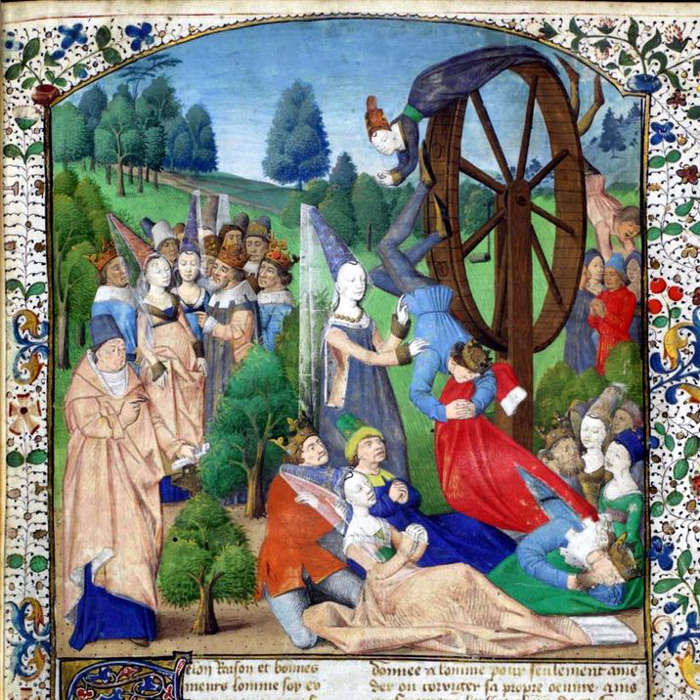FWP:
SETS == EXCLAMATION; INSHAIYAH
SKY {15,7}
For background see S. R. Faruqi's choices. This verse is NOT one of his choices; mostly for the sake of completeness, I have added it myself. For more on Ghalib's unpublished verses, see the discussion in {4,8x}.
Unusually, the same rhyme-word is used in both the opening-verse, {51,1}, and this original closing-verse of the ghazal. Ghalib is not at all averse to re-using rhyme words within a ghazal, but it's rare to find the instances so strategically positioned. But then, the present verse wasn't included in the divan, so obviously he wasn't deeply committed to retaining the closural effect.
The wordplay between ;Gaalib and ma;Gluub -- 'conqueror' and 'conquered', from the same Arabic root-- is obvious. And it is meaning-play as well, because it enhances the effect of shock or outrage in the inshaa))iyah first line. Surely for a 'conqueror' to be 'conquered' is something extraordinary, a reversal of the (proper?) order of things?! Are the heavens showing particular malignity, as in {43,8}? Or perhaps since the garduu;N is a sphere or 'wheel' (see the definition above), the top of the wheel just naturally rotates down to the bottom?
In either case, ;hazrat salaamat is reproached for failing to take note of the problem, failing to take some suitable action. As Gyan Chand notes, the addressee could easily be the king, the beloved, or (sarcastically) the poet himself. Gyan Chand doesn't include God on the list, and Zamin particularly objects to the idea of addressing God in such a way. What kind of a reproach or lament is it, really? That of course depends on the addressee, so it's left for us to decide. The 'kya effect' permits the (also inshaa))iyah ) second line to be read as either a real question or an exclamation of reproach; that too is left for us to decide, and in this verse it seems hardly to make much difference.
Note for grammar fans: In the first line, rahe can be either 'he would/might remain', a future subjunctive in the singular (appropriate for a 'conquered' person); or else 'he remained', a perfect tense using the plural of respect (appropriate for a 'conqueror'). I agree with Gyan Chand in preferring the subjunctive sense.

Asi:
Oh Your Excellency, the wretched/helpless Ghalib has become prey to the cruelty and tyranny of the sky, and you don't hear his complaint and procure justice for him. After all, what aloofness/indifference is this?
== Asi, p. 101